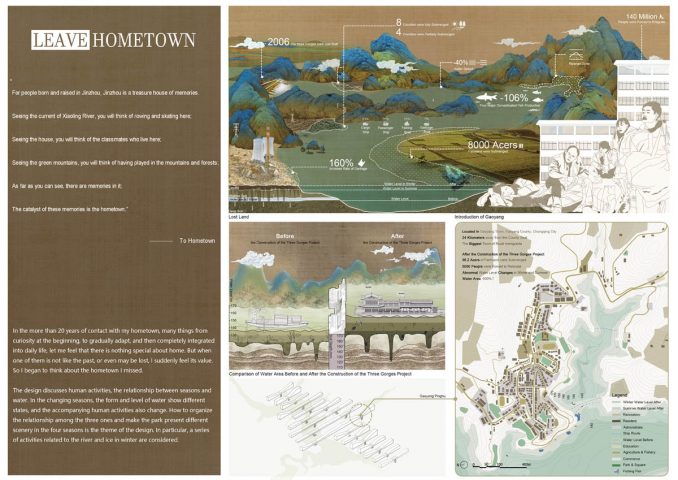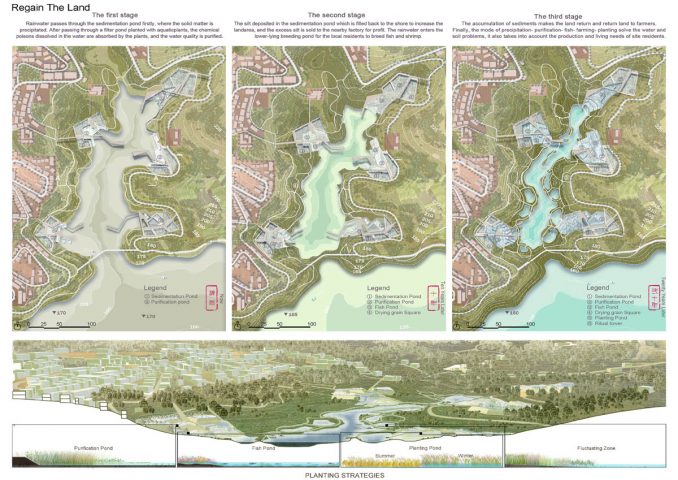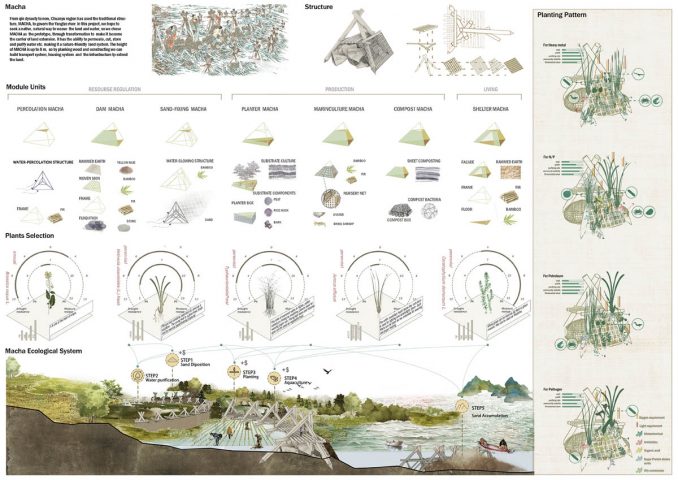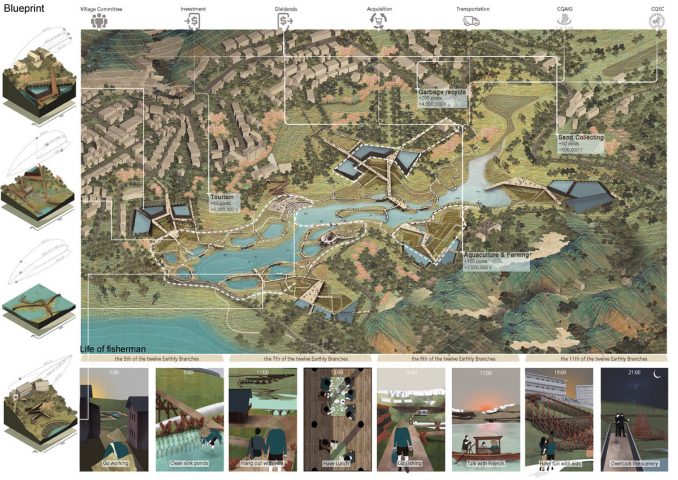After the Three Gorges Hydropower Station came into use, it has brought huge economic benefits to China, but at the same time, the construction of the dam has raised the water level along the Yangtze River, many villages and farmlands have emerged, so that displaced residents moved to other places to settle down from their hometown. Among these people who have left their hometowns, young people mostly choose to go to metropolitan cities to work, while those living in resettlement villages are old fishermen who have difficulty making a living.

The construction of the dam also slowed the flow of water, which caused the accumulation of trash and made the Yangtze River and its inland tributaries more polluted and less aquatic animals.
In response to the two problems of homesickness, difficulty in making a living, and serious water pollution, we designed a new residential system along the river.

First, we purify the water by building Chongqing’s unique riverside landscape “Cascade Pond” along the riverside and planting anti-pollution plants to purify the water.
We carefully chose to use the ancient Chinese water conservancy facility “Macha” as the smallest unit, and take advantage of its ability to fix sediments. Over time, more sediments will be gathered and fixed to form islands, which are further enclosed into ponds. And set up soak landscapes around the pond to adapt to different water levels, so that the site can be used under any water level conditions throughout the year.

The improvement of water quality conditions and the formation of small ponds make it possible to grow crops and conduct aquaculture in small ponds. The livelihood of the fishermen will be settled.
Chinese people have a special attachment to their hometown. As Professor Fei Xiaotong said in Rural China, for Chinese farmers who are half-buried in the loess, it is normal to settle down, and to move is abnormal. So we are also trying to restore their way of life and help them return to their original life. We try to consider ourselves as a fisherman and simulate the fisherman’s day-to-night life and work, consider what they will do, three meals, and the site they pass through and use. We also stretched the timeline again to consider their different ways of working and festivals to celebrate that change each year as the seasons change.

With the passage of time, this landscape system has become more and more integrated. Through the joint efforts of designers, users, and the government, the fishermen have gradually returned to normal life and even have better economic conditions. The lost hometown was rebuilt on new land.
Student Project | Leave Hometown | Shuting Li & Yiyan Wang & Yuhan Wang & Yuanxi Liu
Project Name: Leave Hometown
Students Names: Shuting Li; Yiyan Wang; Yuhan Wang; Yuanxi Liu
School: Chongqing University; Beijing Forestry University; The University of Edinburgh; Architectural Association School of Architecture
Advisor: Jian Jiao
